Panhandling ordinance amendments pass 1st council vote; More restrictions could be coming
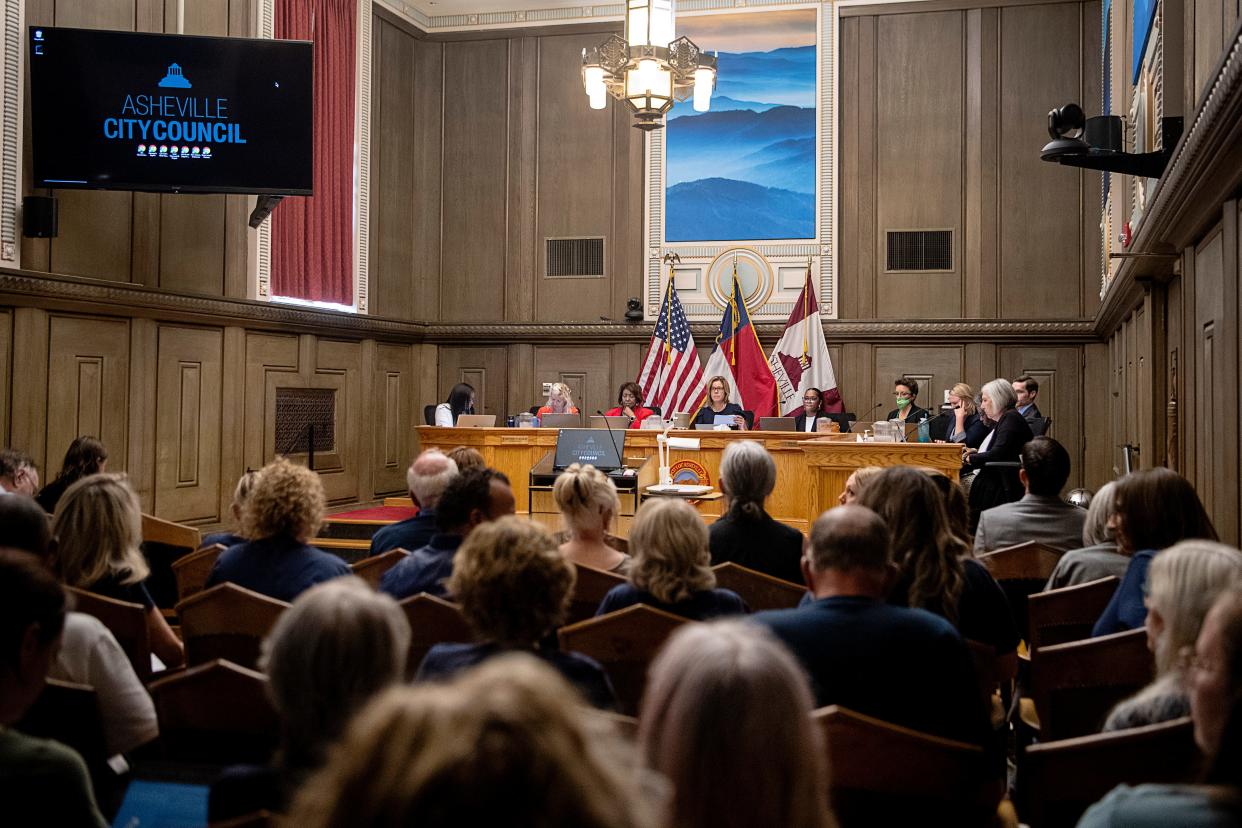
ASHEVILLE - Technical amendments to the city's panhandling ordinances, which have remained largely unchanged for more than two decades, were approved by Asheville City Council Aug. 22, with more intensive amendments potentially on the horizon.
The vote was the first reading of the proposed change, drawing 26 speakers over nearly two hours of public comment. It passed 6-1, with only Councilmember Kim Roney opposing.
A second reading will take place Sept. 12.
Though panhandling and a host of potential restrictions were top of mind for many at the Aug. 22 City Council meeting, the night's vote did not deal with the "substantive" changes proposed in July by a council committee, which garnered a massive response throughout community.
Instead, the vote surrounded a number of "technical amendments." The more dramatic amendments — like those that could create stricter laws for panhandling in areas of the city and restrict giving from vehicles — will likely return to council committee for consideration Sept. 26, then onto City Council Oct. 10.
City Attorney Brad Branham said the technical amendments were needed to remain compliant with existing federal laws, and were not intended to expand any existing regulations or penalties.
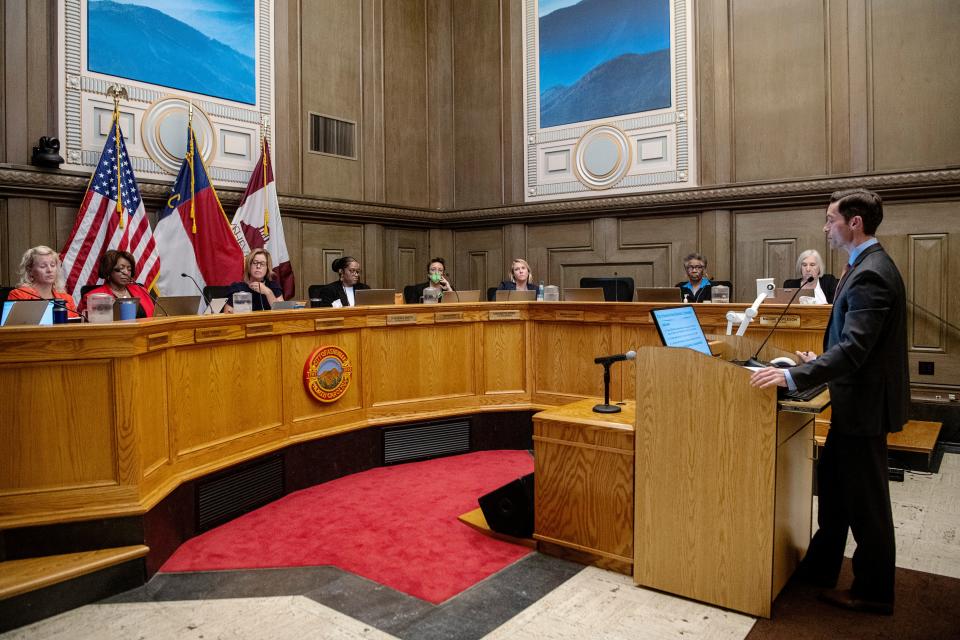
But for some, they still posed a threat of undue restriction, with many concerned about the "criminalization of poverty" in a city already struggling with high rents, low housing stock and in the midst of a self-described homelessness crisis.
“The goal for public safety in our city will never be reached if solutions are punitive and carceral,” said Sara Wilcox, among the evening's first speakers. She feared changes would trigger even deeper challenges. “Cutting off resources won’t cut down the needs of our most vulnerable. It’s likely to create bigger need.”
Branham said the language updates would remove ambiguity from Asheville City Code (of which sections 11-5 and 11-14 pertain to panhandling or "solicitation"), by bringing the code into compliance with the latest court decisions and increasing specificity in the language.
Among the tweaks intended to "create specificity," was language that defined the distance anyone solicitating must be from transit stops or from someone who has declined further interaction with the person soliciting. Currently, the code reads "at any transit stop," and "in close proximity," for each scenario, respectively. The change would specify a distance of 8 feet.
Ben Scales, an Asheville-based attorney, said changes discussed Aug. 22 were "more than just technical amendments."
“While they don’t increase penalties, they do increase the restrictions. I believe that they will increase the burden on our already overworked, understaffed, underpaid and definitely underappreciated police force,” Scales said. "We are asking them to solve societal problems that would much better be fit to solve through evidence-based, data-driven solutions.”
Read the revised ordinance at https://bit.ly/3KQiOPF.
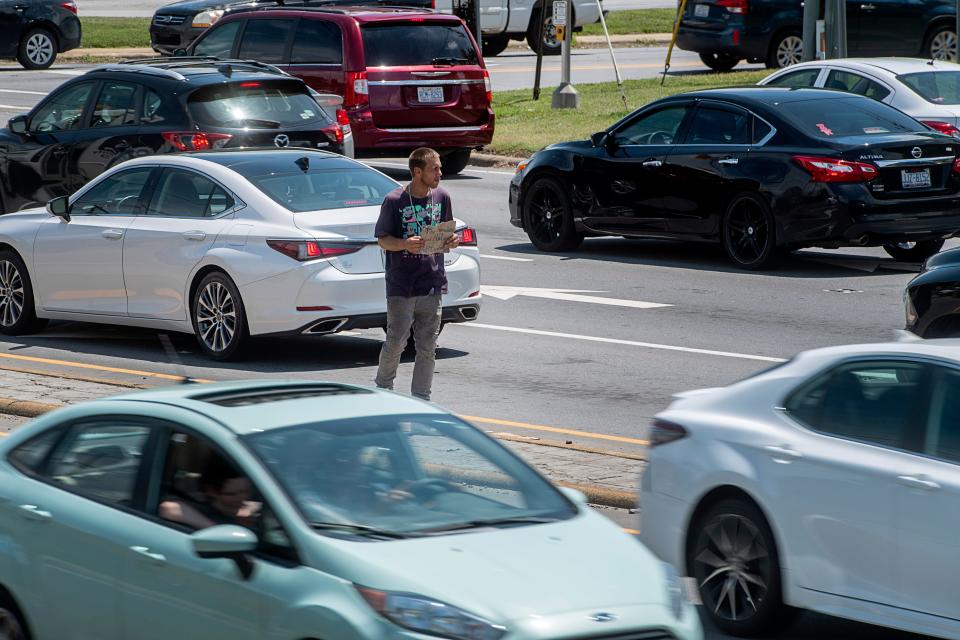
While the majority of the speakers were in opposition to the ordinance changes — either the night's technical amendments, the possible substantive amendments or both — several speakers were in support, like members of Asheville Coalition for Public Safety, who showed out for the meeting in full force.
“This conversation isn’t about the details of an ordinance, this is about what do we want our city to be and what do we want to become,” said Honor Moor, founder and co-chair of the organization. She said the "real focus" should be raising wages for Asheville Police Department to recruit and retain officers.
As part of the city's fiscal year 2024 budget, council increased police pay by 6%. All other city staff received 5% raises.
Shelia Surrett, who kicked off the public comment with a slideshow of images of people in downtown, shown sitting on sidewalks, standing on medians or napping in chairs, said she was there to speak to how bad panhandling is for the city, "how it's torn up our tourism," and that police officers should be paid more to "get them on the street and take care of people like that."
Patrick Conant said while the Aug. 22 formal vote dealt with the technical amendments, he felt the more significant decision was to allow staff to continue pursuing possible further amendments to expand the ordinance.
Said another speaker, Rachel Bliss: “Come on folks, let’s try to be good neighbors.”
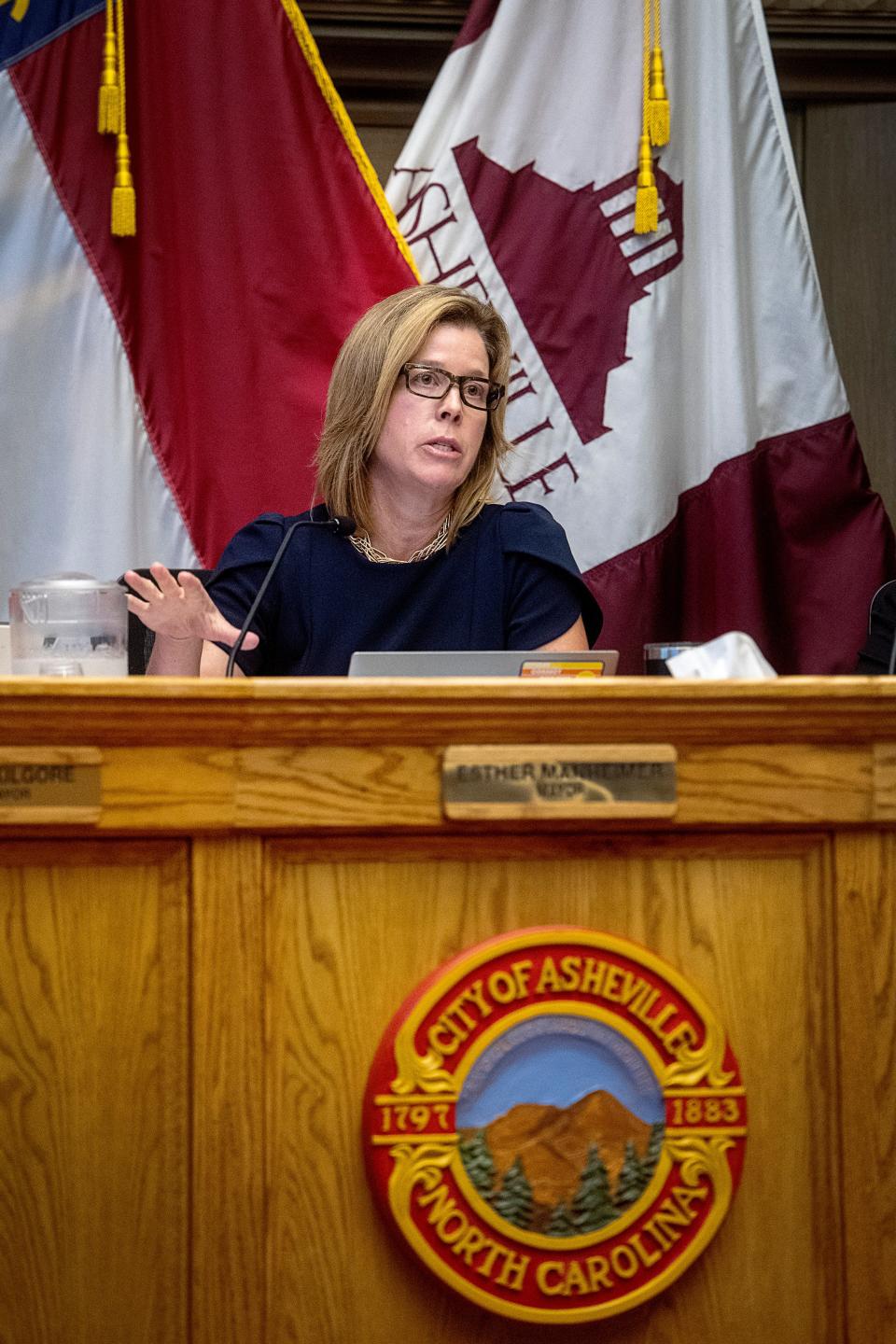
Background on the vote
Branham said restrictions and limitations against begging, solicitation and panhandling have been part of the city's code for decades, and recent Supreme Court rulings, namely in City of Austin v. Reagan and Reed v. Town of Gilbert, necessitated an update in the ordinances' existing language.
Currently, it is illegal to panhandle on roadsides and medians without a permit. Solicitation is also restricted by "prohibited acts," which include touching someone without consent, blocking someone's path, using profane or abusive language (phrasing of which could be updated to "obscene or threating language or fighting words" under the proposed amendments), after dark, while under the influence and more.
Additional restrictions apply in "high traffic zones," which now encompass Biltmore Village Historic District and large swaths of downtown.
At a July 25 Environment and Safety Committee, comprising council members Maggie Ullman, Sheneika Smith and Vice Mayor Sandra Kilgore, members floated new regulations, including expanded high traffic zones, to include Haywood Road in West Asheville and the River Arts District, and making it illegal for motorists to give money from their vehicle.
These proposals will be taken up again in September, Branham said, after more time is allotted for public input and staff analysis. Branham told the Citizen Times Aug. 4 that a complete ban on giving from vehicles would be unconstitutional and the city is not considering this, but regulations could be placed on certain time, place and manner where giving can occur, similar laws to those surrounding panhandling.
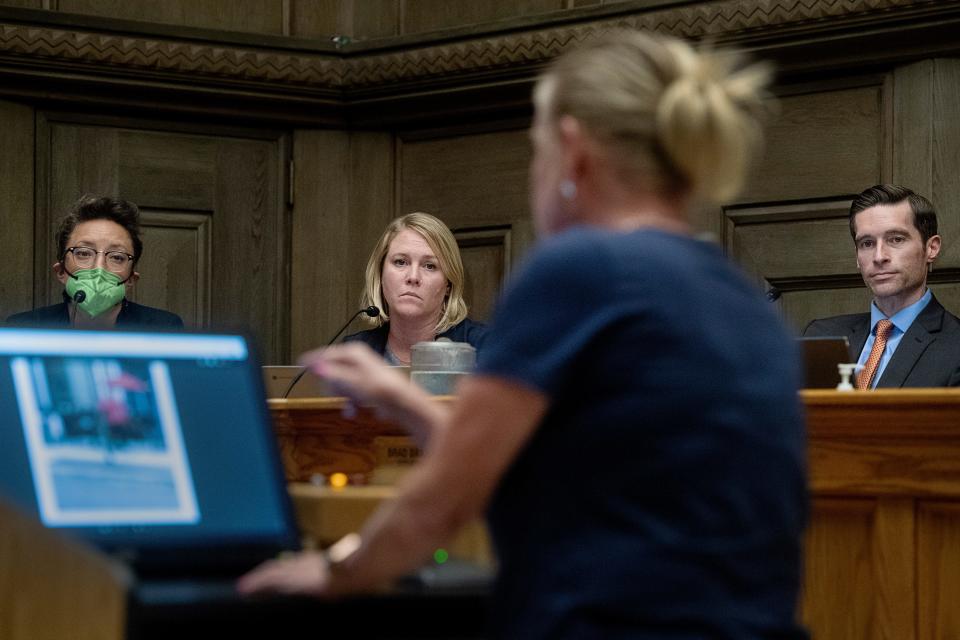
At the Aug. 22 meeting, Ullman said while it's clear people are divided on short-term solutions and other methods, they are in agreement that "we need to band together to address root causes."
She also asked to take the prohibition of vehicular giving "off the table."
“What I’m deeply understanding through lots of conversations is that charity is intensely personal and spiritual and religious for many,” Ullman said. "And I don’t see that government intervening in that individual's choice of charity is in our best interest. I think it will harm more than help."
Ullman, in an Aug. 11 Facebook post, said her car tires were slashed and car windows smashed the night of Aug. 10 at her family's home less than 24 hours after she and four other council members signed an open letter intended to elevate the city’s conversations around public safety.
She was in support of the technical updates.
Mayor Esther Manheimer also spoke to calls to address "root causes," and stressed that the city's work is underway to pursue January recommendations from the National Alliance to End Homelessness, and to work with partners and collaborate in addressing "multifaceted" challenges.
“I just want to emphasize that this is one part of a large conversation that has a lot of pieces to it," she said.
More: Asheville council to vote on panhandling ordinance changes Aug. 22. What's on the table?
More: Updated Asheville ordinance may restrict giving to panhandlers; lawyers, panhandlers react
Sarah Honosky is the city government reporter for the Asheville Citizen Times, part of the USA TODAY Network. News Tips? Email shonosky@citizentimes.com or message on Twitter at @slhonosky. Please support local, daily journalism with a subscription to the Citizen Times.
This article originally appeared on Asheville Citizen Times: Asheville panhandling ordinance: City Council OKs 1st vote; Now what?

